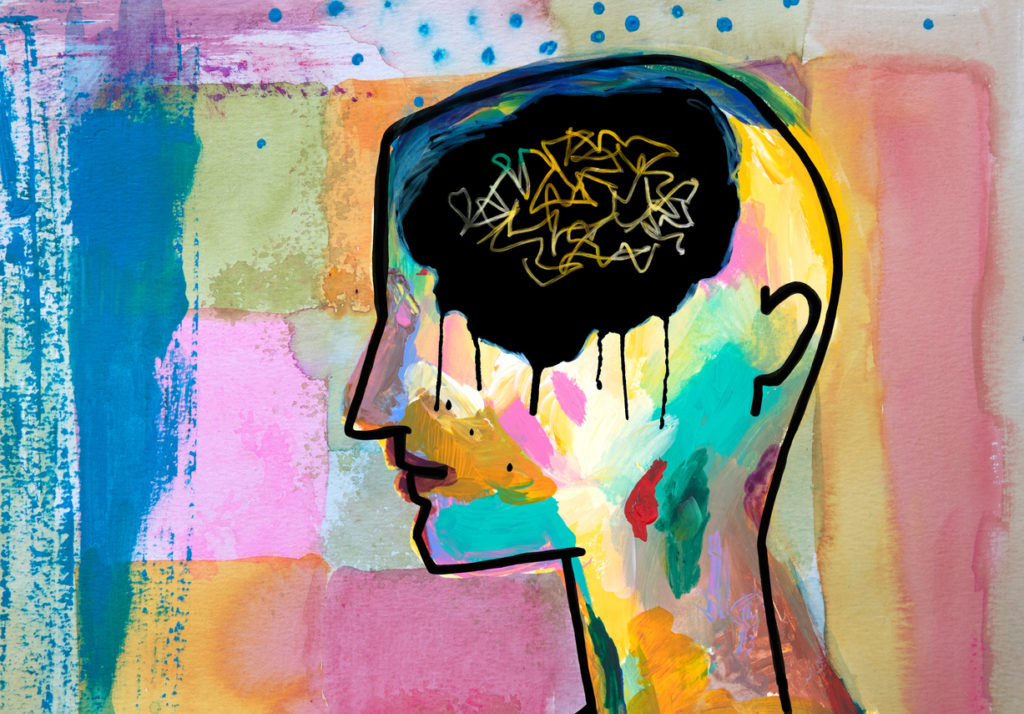This video provides a basic understanding of Alzheimer’s disease and examines the ways it affects people living with or caring for those affected by it. Some important issues that often need to be discussed and decided upon to prepare for the future include appointing guardians, power of attorneys, and discussing and changing activities (eg. whether to avoid or stop driving). It offers practical advice on dealing with everyday life to make living with Alzheimer’s disease more manageable, through experiences shared by people living with the disease. Medical professionals also discuss treatments that can slow down the progress of the disease, and organisations that offer support.
Continue watching this series
This is the second of three videos.
 |
To watch the next video in the series, see Dementia: Caring for the Carer. |
 |
To watch the first video in the series, see Dementia: 10 minute exercises to improve your physical and mental health. |
Transcript
Dorothy
It’s distressing in lots of ways. Um, it’s funny in lots of ways. We often have a good old laugh about things like when he left me up in the shopping centre one day.
Ross Symons
He left you there did he?
Dorothy
Well, kind of, he didn’t go very far but ah, he was taking, we only needed a couple of things, so he said “oh I’ll take these parcels back to the car, that’s fine.”
“I’ll go to the butchers,” I said, and then I’ll come back to the car.
By the time he got back to the car he’d forgotten what I said, and he thought, “Oh, it will be a good idea to drop the car up the other end of the shopping centre, which he did.
So I went back to where the car should have been and I looked, and I thought, “Am I in the right street?” Because, it’s a bit of a struggle, you know, you get into your 60s and you do have memory blanks. But I thought, “No, no, this is where we left the car. Where’s that jolly car, where’s that man?”
And we were telling friends at ten pin bowls on the Monday and they said, “Did you get mad at him?” and I said, “You’re damned right I got mad at him.” I was ready to strangle him, “Where did you put that car?”
And he came around the corner then and he said, “Oh, I moved the car up the street. I thought it would be better for you.” [Background: Where have you been?”]
So, you know, we laugh about things like that. But at the same time, you know, that afternoon I thought, “Now how can I get around, when these problems, you know, obviously he didn’t hear what I said, but it was more than that. One of the books that I read, he explained, he has Alzheimer’s and he’s very vocal and literary, and he explained that it’s like being on a telephone that cuts out every now and then and you miss out on some of the words, so the whole sentence has been there, but you’ve only got parts of it. And I think this is what happened. John heard parts of it and I didn’t know. Because he had a smile on his face, he looked quite happy. He wasn’t worried.
Ross Symons
As we get older, we can sometimes forget things or have difficulty facing new or complicated situations. And while this is often normal, for some people these are the early symptoms of a disease which is affecting their brain, Alzheimer’s disease. Hello, I’m Ross Symons. In this video, we’ll look at Alzheimer’s disease, including what it is, how it may affect you, or a person you care about and ways of working together to beat the challenges of the disease.
You’ll also see that you’re not alone in facing this disease, as people already dealing with it, offer you some practical advice and support. You may feel you’d like to watch this video more than once and you may want to show it to your partner, family or friends. It’s also a good idea to write down any questions you might have while you’re watching the video, so that you can ask your doctor, during your next visit. We’ve divided this video into four chapter headings, so you can easily fast forward or rewind the tape to sections that you want to see again [times noted in brackets below]. These sections are:
- What is Alzheimer’s disease, including what causes it and how it feels to live with the disease. [time: 4:18]
- Issues that Alzheimer’s disease raises and suggestions for dealing with them. [time: 7:08]
- Practical suggestions for dealing with the disease including possible treatments. [time: 12:00]
- How to work together with family, friends and your doctor, to beat the challenges of the disease. [time: 15:33]
We’ll talk to people living with Alzheimer’s disease and similar conditions later on. We’ll also meet Dr Dimity Pond, a General Practitioner who has cared for many people with dementia.
But first let’s look at what Alzheimer’s disease actually is.
What is Alzheimer’s disease?
 Alzheimer’s disease is a condition which affects the working of cells in the brain. As time goes by, the disease continues to damage different areas of the brain, affecting different brain functions over time. Because Alzheimer’s disease affects people in different ways, it’s hard to predict what will happen to any one person who has the disease.
Alzheimer’s disease is a condition which affects the working of cells in the brain. As time goes by, the disease continues to damage different areas of the brain, affecting different brain functions over time. Because Alzheimer’s disease affects people in different ways, it’s hard to predict what will happen to any one person who has the disease.
However, in the early stages, common symptoms include feeling confused or vague and having trouble remembering words and names. Dementia is the term used to describe this picture of confusion and memory loss and possible personality change. The most common form of dementia is Alzheimer’s disease. John and Dorothy found out that John had Alzheimer’s disease 18 months ago. John, what are some of the symptoms of the disease that you’ve noticed?
John
Oh, I guess that I’d have little bits of mental blank, you know, about certain things, and then I’d have to ask Dot. “What was that all about?”
Ross Symons
So this wasn’t your normal way of thinking? Your memory before was quite good?
John
No, my memory before was you know, I could remember, I didn’t have to ask because I knew. And ah, it just got to the point where I didn’t realise I didn’t know what I was doing.
Ross Symons
Well Dorothy what were the changes in John that you noticed?
Dorothy
Well the repeated questions, of course. You know, “Where are we going?” And then ten minutes later, “Who are we going to see?” And sometimes we would have been out the day before buying one of the grandchildren’s birthday present, heading over there the next day. “Whose place are we going to? Whose birthday is it?”
And you know, sometimes you think, you feel a little bit let down, because you know, this kid’s important to us, and you should be able to remember, but then once the diagnosis came, I was a lot more patient than I was in the days before. It helped me to know that there was a reason behind it.
Ross Symons
We know Alzheimer’s can affect people in their 40s, but the risk increases with age. In fact by the time we reach 65 we have a 1 in 8 chance of developing the disease. Scientists are still working out what causes Alzheimer’s disease but we know that getting older, having a head injury, and being closely related to someone who has had the disease, increases the risk of developing it. It is important to understand though that Alzheimer’s disease is not contagious. You can’t catch it from anyone.
Issues to discuss and decide upon
 Dr Dimity Pond is a General Practitioner who has helped many people understand and deal with Alzheimer’s disease. Dr Pond, what are the issues that people need to address as they face Alzheimer’s?
Dr Dimity Pond is a General Practitioner who has helped many people understand and deal with Alzheimer’s disease. Dr Pond, what are the issues that people need to address as they face Alzheimer’s?
Dr Dimity Pond
Well I think the main issue is that you will gradually find yourself becoming more forgetful and find things more difficult over time. And so you need to think about how you can care for yourself and how others can help you care for yourself later on. And that may involve getting an Enduring Guardianship Order, Enduring Power of Attorney, for your relatives to look after your money. And then you need to think about other practical things, such as whether or not you will be able to continue driving, you may need to give that up.
Ross Symons
So if you have Alzheimer’s disease there are some important issues that you need to consider and discuss with the relevant people or professionals, appoint someone close to you, to act as your enduring guardian, so that they can assist in making decisions on your behalf when necessary. Assign a Continuing Power of Attorney to someone you trust, so that they can manage your legal and financial affairs for you, when you’re no longer able to. It’s also important to review your will, to make sure property and responsibility, is left to someone capable of fulfilling your wishes.
Alzheimer’s disease can affect driving ability very early. So although this can be difficult, you probably should avoid or stop driving fairly soon.
Dr Dimity Pond
Driving is actually much more complex than you realise. It takes quite a lot of judgement and there may be emergencies that you have to think about really quickly. So as you gradually become unable to make quick decisions, it takes longer to think through choices and decisions, and I think it’s important that you stop driving. It’s safer, you know. Not only for you but you have to think about the other people on the road as well.
Ross Symons
The disease will affect your ability to handle home or business affairs. So the right time to give up these activities will have to be considered. Peter and Nancy have been living with Peter’s Alzheimer’s disease for over a year.
Peter
My general daily activities would have been working, and now I’m around the home, I’m supposed to try to do things. We are closer together and that’s very important.
Ross Symons
Is there any sort of message that you’d like to give to other people that are trying to cope with this situation?
Nancy
Yes. Get your life in order and forget about the fact that you might come home and find all the cupboards rearranged, it doesn’t matter. None of these things, the tidy house, the prettiness, none of this matters anymore. It’s totally irrelevant.
Ross Symons
What does matter?
Nancy
Your relationship, between you, your husband and your family. It’s the most important thing.
Ross Symons
Christine has a condition called Fronto-Temporal Dementia, which has symptoms similar to Alzheimer’s disease. Her daughter Michelline lives with her. Well Christine, how did you feel when you first found out you had this condition?
Christine
I think terrible fear, because you don’t know how quickly things will change, you don’t know what’s going to happen, you don’t know a lot about the disease. So you sort of fear, some positive things. I stopped work. That’s a positive. But mainly though it’s the fear of not knowing how fast I would deteriorate. That was really difficult.
Ross Symons
And what about you Michelline, what sort of changes have you made to your everyday life?
Michelline
I used to be more loud and I’m still loud but a little less loud. I used to be hyperactive, and I’ve had to calm down, just look after Mum, I have to warn her.
Ross Symons
And what about your school life?
Michelline
I have to make sure I’m more organised for parent-teacher interviews and I have to give her notice for assignments due and ask for help before it’s all a rush and things.
Ross Symons
So, conditions such as Alzheimer’s disease affect different people in different ways. However, the important issues, such as driving, enduring guardianship, and enduring power of attorney, should be dealt with as soon as possible. But now let’s look at how everyday changes can make living with Alzheimer’s more manageable.
Dealing with Alzheimer’s disease
 Dorothy
Dorothy
If we had a couple of days at home not going anywhere, he gets inclined to sleep a lot. And I feel that, you know, he needs the stimulation. He needs the rest too.
Ross Symons
So it’s a combination of keeping up the activity, with a certain amount of risk?
Dorothy
A combination. Not getting over-tired but keeping interested, stimulated I think is what they say. Keeping interested in things.
Christine
We try not to have background noise because I can’t cope with someone trying to talk to me as well as background noise going on. And I don’t often watch the television because that’s distracting. And this is unique to me I think, it just doesn’t happen to anybody.
Ross Symons
So you need to need to concentrate on one thing at a time.
Christine
One thing at a time. Yeah a diary is very, very important because it helps me remember what day it is, but also that I had a yesterday and what I did yesterday, so that if someone says, “Oh wasn’t it lovely whatever we did yesterday,” I don’t look too blank. I can at least look at the diary and try and remember what it was that I did, and I can start remembering about it. Which is good.
Ross Symons
So what about you Michelline? How has life changed for you since you found out your mum has this condition?
Michelline
I have to do a lot of different things, like not going out as much, because I can’t get driven there, especially late at night. Um, I have to write down things in mum’s diary because she’ll forget otherwise. And I have to give her lots of notice before I do something. Just be much more organised and give much more notice.
Ross Symons
If you’re living with someone that has Alzheimer’s disease, here are some practical steps you can take when they become necessary. Your doctor and the Alzheimer’s Association, can also give you more specific advice on practical issues.
Try not to change things in the home, as it can lead to confusion. Use calendars, clocks and spoken clues as reminders of the day, time and the activity at hand. Keep noise to a minimum, and turn off the TV when talking. Allow people time to think things through. Let them answer questions and finish their sentences.
Don’t try to do everything. It can make the person with Alzheimer’s disease feel they have nothing to contribute. Most importantly while people with Alzheimer’s disease might not be able to do everything they used to, there are still many things which they can do. Encourage them to use the skills and abilities that remain.
Recently, new treatments have been introduced for Alzheimer’s disease and you may wish to talk to your doctor about these.
Dr Dimity Pond
Well I think all the things that we’ve talked about are part of the treatment, but as well as that there are drug therapies available now. They’re not suitable for everyone, but they can offer some hope for some people, in that they’ll arrest the progression of the disease. They don’t actually cure you, but they can slow down the progress. As well as that, you may be able to be referred by you General Practitioner to an aged care assessment team, who may be able to offer you various management structures, or perhaps to a specialist.
Working together
 Ross Symons
Ross Symons
You’ve probably already noticed that dealing with Alzheimer’s disease is a team effort. There’s usually one person who takes on the role of supporting the person with the disease. However, other family and friends, as well as your doctor, are all important in helping you meet the challenges of Alzheimer’s disease and similar conditions.
Christine
My eldest daughter helped a great deal. She was 19 at the time so she helped a great deal in the beginning. She helped a lot to take the burden off my shoulders by, we got an Enduring Power of Attorney for her, so that she could you know, manage my finance should I ever got sick, and now I’ve got that form as well.
Ross Symons
So that’s an important aspect of your life?
Christine
I think it is. I think it’s very important to take off that stress of what’s going to happen if I can no longer make decisions. So I’d certainly recommend that to other people and I have been. While you can still do everything yourself, why not just make sure that you can select who you would want to make decisions for you if you can’t one day.
Ross Symons
If you have Alzheimer’s disease or a similar condition, you need to make important decisions now, to minimise any future difficulties for people who’ll be supporting you. The good news is there are still many things you can do and enjoy in the years to come. And your doctor may be able to offer you treatment to slow down the disease symptoms.
If you’re a friend or a family member, there will be difficult times ahead, as well as a lot of joy. You should prepare yourself for the future by talking to your doctor and the Alzheimer’s Association. You can contact The Association 24 hours a day for advice or support. It’s a free phone call from anywhere in Australia. Or visit their website, which is shown on the screen.
Learn to adapt to the changes of the person you care about. And always remember to look for the positives. But don’t forget to look after yourself too. And don’t be afraid to ask for help or support if you need it.
Dr Dimity Pond
The important thing to remember is you’re not alone. There are many other people in the same situation. And the Alzheimer’s Association can help you networking with those people, and get some support from them, and share some of the common problems you might have. And most important of all, you’ve got each other.
Ross Symons
Remember, meeting the challenges of Alzheimer’s disease is a team effort, where everyone benefits from the strengths and support of the people around them. By working together, you can help make the times ahead as happy and rewarding as possible.
Christine
I’m looking at the positives, that I’ve got a lot to give and a lot to receive from life from now on. And everybody is so unique, so I would suggest you look on the positive side.
Michelline
It’s the only way to look at the future, in a positive way. There’s no point getting depressed because it doesn’t help. And it won’t do anything to the disease. It won’t make it go away. Just the only way is to help yourself is to be happy.
Dorothy
But I feel that the most important thing is to enjoy, what is now, right now. Enjoy every day. Make memories. Take photos. Because later on those photos are going to be very important to both of you. And share it with people.
More information
 |
For more information, visit Dementia. |
All content and media on the HealthEngine Blog is created and published online for informational purposes only. It is not intended to be a substitute for professional medical advice and should not be relied on as health or personal advice. Always seek the guidance of your doctor or other qualified health professional with any questions you may have regarding your health or a medical condition. Never disregard the advice of a medical professional, or delay in seeking it because of something you have read on this Website. If you think you may have a medical emergency, call your doctor, go to the nearest hospital emergency department, or call the emergency services immediately.







